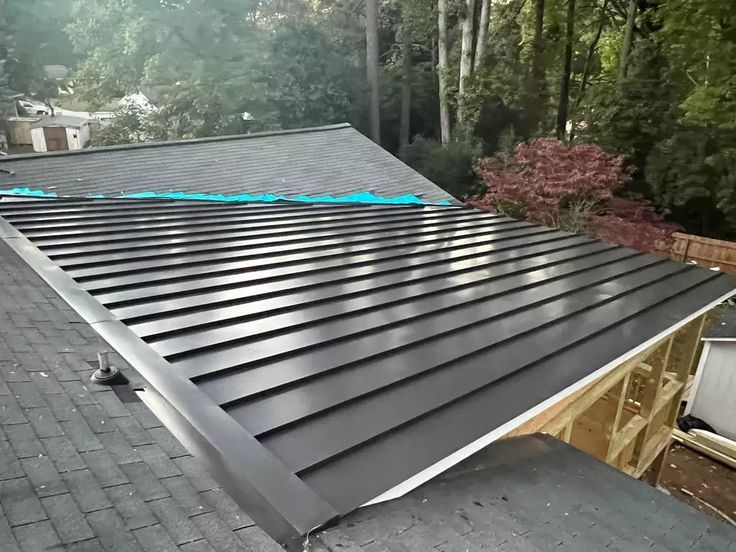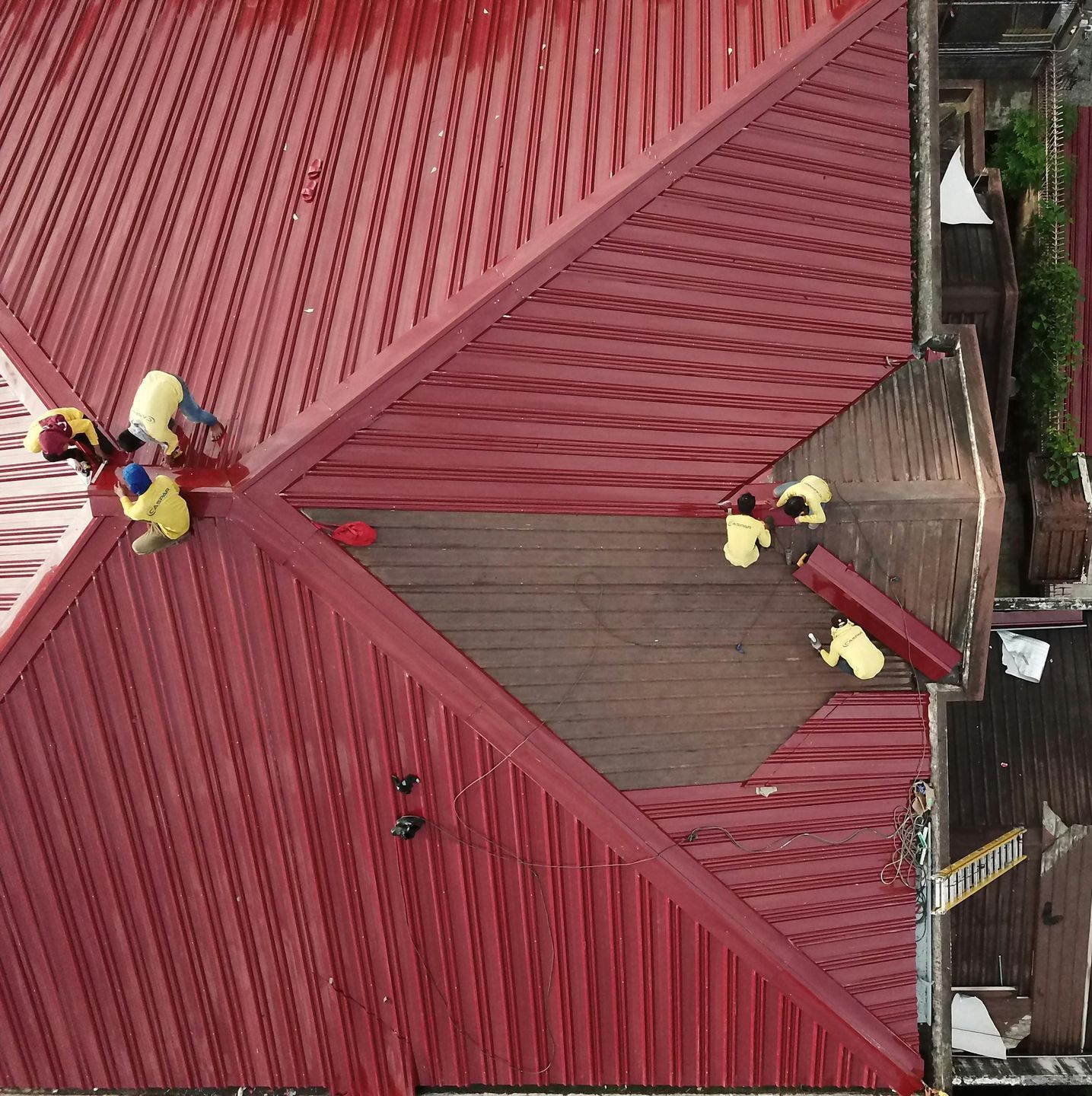Low-Slope Roof Waterproofing Solutions in Elgin, IL
Protecting your property from costly water damage starts with understanding that low-slope roofs face unique challenges that require specialized expertise. Low-slope roof waterproofing solutions demand precise application techniques and premium materials to create lasting barriers against moisture infiltration, especially given the demanding weather conditions common throughout northern Illinois.
Elgin Elite Roofing recognizes that ponding water, membrane deterioration, and thermal cycling can quickly compromise flat and low-slope roofing systems. Our comprehensive approach addresses these vulnerabilities through proven waterproofing methods that deliver reliable, long-term performance for both residential and commercial properties.
We evaluate each roof's specific conditions, including existing materials, drainage patterns, and structural considerations, to develop customized waterproofing strategies. Our experienced team combines advanced waterproofing technologies with meticulous installation practices to create seamless protection that withstands harsh winters, heavy rainfall, and temperature fluctuations. We prioritize proper surface preparation, precise application, and comprehensive quality checks throughout every phase of the project.
When you choose our services, you're investing in expertise that extends your roof's lifespan while minimizing future maintenance concerns. Our commitment to excellence ensures your waterproofing system performs reliably for years to come, protecting your valuable investment from the ground up.
Our Low-Slope Roof Waterproofing Services
We provide precise and reliable waterproofing services tailored to low-slope roofs. Our approach includes advanced systems, customized designs for commercial use, and careful selection of durable materials to ensure long-lasting protection.
Innovative Waterproofing Systems
We utilize state-of-the-art waterproofing technologies specifically designed for low-slope roofs. This includes liquid-applied membranes that create seamless barriers and reinforced sheet membranes for added strength.
Our systems are designed to address common challenges like ponding water, UV exposure, and thermal movement. Each method is tested for compatibility with existing roofing structures to avoid damage and ensure maximum effectiveness.
Customized Solutions
We understand the unique needs of commercial properties. Our waterproofing plans account for the roof’s size, foot traffic, and equipment load.
By conducting thorough inspections, we tailor each project to avoid disruption to daily operations. We coordinate closely with building managers to deliver solutions that meet local codes and client specifications while maintaining budget and timeline.
Material Selection
Selecting the right materials is critical for waterproofing success. We prioritize products with proven resistance to water infiltration, temperature extremes, and mechanical wear.
Our choices include EPDM rubber, TPO membranes, and polyurethane coatings. Each material is evaluated for thickness, flexibility, and warranty coverage to ensure it delivers long-term performance suited to the building’s environment.

Benefits of Waterproofing Low-Slope Roofs
Effective waterproofing improves the durability, safety, and efficiency of low-slope roofs. It addresses common vulnerabilities and helps lower long-term maintenance and energy costs.
Extended Lifespan
Waterproofing preserves the structural integrity of low-slope roofs by preventing water damage that causes material deterioration. This protection reduces the risk of leaks, cracks, and blisters.
By applying quality waterproofing membranes and coatings, we enhance roof resilience against weather extremes. This helps maintain consistent performance and extends the roof’s functional lifespan by years.
Protection Against Water Intrusion
Low-slope roofs are especially susceptible to pooling water, which increases the risk of infiltration. Waterproofing creates a reliable barrier that blocks water at the surface and seals joints.
Our waterproofing solutions are designed to eliminate weak points where moisture can enter, including flashing, seams, and penetrations. This reduces the risk of mold, structural damage, and costly restoration.
Energy Efficiency
Waterproofing improves thermal insulation by adding reflective coatings or insulation layers. This helps regulate indoor temperatures by reducing heat gain in summer and heat loss in winter.
Better insulation means lower reliance on HVAC systems, cutting energy consumption and utility bills. We help clients save money on heating and cooling while maintaining comfort.

Why Choose Elgin Elite Roofing
in Elgin, IL
We specialize in low-slope roof waterproofing with years of hands-on experience serving Elgin, IL, and nearby areas. Our team understands the unique challenges these roofs face and provides tailored solutions to ensure lasting protection.
At Elgin Elite Roofing, quality materials and proven techniques are standard in every project. We focus on using products that meet industry standards for durability and weather resistance, helping to extend the life of your roof.
Our process is transparent and customer-focused. We communicate clearly about timelines, costs, and maintenance needs so you know exactly what to expect from start to finish.
We are fully licensed and insured. Our professionalism and adherence to local building codes reflect our commitment to safety and reliability.
Choosing us means partnering with a company that values integrity and thorough workmanship. Our previous clients consistently report satisfaction with both the performance of their roofs and our service approach.
FAQs About Low-Slope Roof Waterproofing Solutions
We address common concerns regarding the specific types of low-slope roofs we waterproof. Understanding the materials and roof styles we handle helps clarify our approach and expertise.
How much does low-slope roof waterproofing cost?
Low-slope roof waterproofing costs vary based on roof size, material choice, and existing conditions. Most residential projects range from $3 to $8 per square foot, while commercial applications typically fall between $4 to $12 per square foot. Factors affecting price include surface preparation needs, accessibility, and whether it's a new installation or retrofit over existing roofing.
What's the best waterproofing system for flat roofs?
The best waterproofing system depends on your building type, budget, and performance requirements. EPDM rubber membranes offer excellent durability and weather resistance for most applications. TPO systems provide energy efficiency benefits with their reflective properties, making them ideal for commercial buildings. Modified bitumen works well for residential applications requiring flexibility. PVC membranes excel in areas with chemical exposure or extreme weather conditions.
How long does roof waterproofing installation take?
Most residential low-slope roof waterproofing projects are completed within 1-3 days, depending on roof size and complexity. Commercial installations typically require 3-7 days based on square footage and system type. Weather conditions can affect the timeline, as most waterproofing materials require dry conditions for proper application. Surface preparation and any necessary repairs may add additional time.
What waterproofing materials last the longest?
PVC and TPO membrane systems typically offer the longest lifespan, often lasting 20-30 years with proper maintenance. EPDM rubber membranes provide 15-25 years of reliable service and excellent weather resistance. Modified bitumen systems generally last 12-20 years and offer good value for residential applications. The actual lifespan depends on installation quality, maintenance, and local weather conditions.
When should I waterproof my low-slope roof?
Waterproof your low-slope roof when you notice recurring leaks, ponding water, or visible membrane deterioration. Preventive waterproofing is ideal during roof replacement or major renovations. The best time for installation is during dry, mild weather conditions, typically late spring through early fall. Don't wait for major leaks to develop, as water damage becomes exponentially more expensive to repair.
